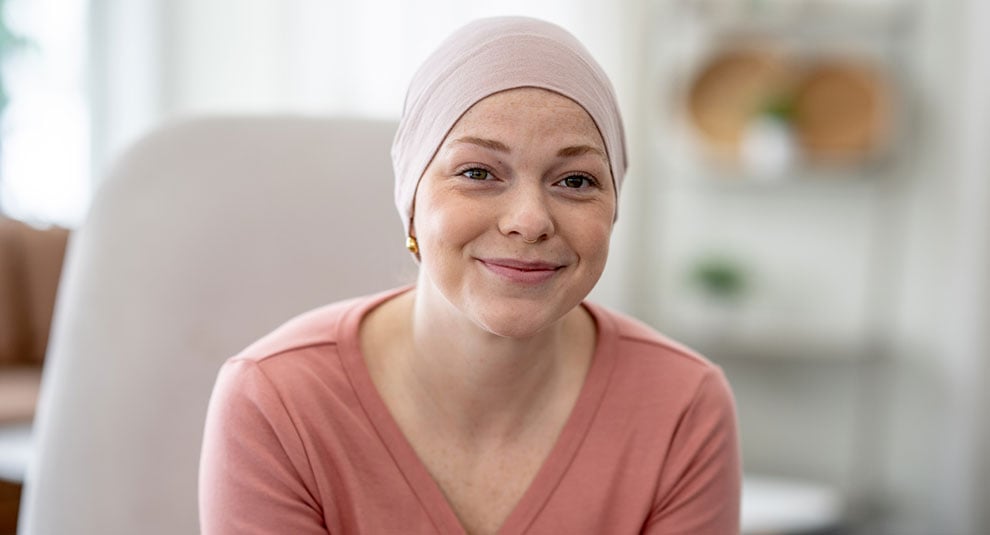Neurofibromatosis Signs and Symptoms

Neurofibromatosis (NF) is a rare genetic condition that causes small noncancerous tumors to develop in the nervous system (neurofibromas). NF is most frequently diagnosed in children, but it can affect people of all ages. Although neurofibromas are benign, they can sometimes cause significant health issues and complications that require specialized treatment. The signs and symptoms of NF can vary based on the tumor type.
Types of neurofibromatosis
There are three main types of neurofibromatosis:
Neurofibromatosis type 1
Also known as von Recklinghausen’s disease, neurofibromatosis type 1 (NF1) is the more common type of neurofibromatosis, accounting for up to 96% of cases. Caused by a mutation in the NF1 gene, the condition is characterized by the development of multiple noncancerous peripheral nerve tumors, which form on major and minor nerve pathways in the skin and deep within the body, usually during childhood.
Neurofibromatosis type 2
Neurofibromatosis type 2 (NF2), which results from a mutation in the NF2 gene, causes noncancerous acoustic neuromas to form on the main nerve leading from the inner ear to the brain. NF2 tumors can also grow on spinal nerves.
Schwannomatosis
Schwannomatosis is characterized by the development of schwannomas, a type of neurofibroma that arises in Schwann cells in the peripheral nervous system. These specialized glial cells help form the protective myelin sheath around nerve fibers.
Early warning signs of neurofibromatosis
The symptoms of neurofibromatosis can vary widely from patient to patient, even among those who carry the same genetic mutation and have the same tumor type.
What does neurofibromatosis look like?
The hallmark sign of neurofibromatosis is more than six café-au-lait skin spots, which usually become apparent shortly after birth. These pigmented birthmarks can range from light brown to dark brown, differing in color from the surrounding skin. In French, “café-au-lait” means “coffee with milk.” Here, the term is used to describe the color of the birthmark, which is similar to the creamy tone of a cup of coffee with cream. Café-au-lait spots can range in size from a few millimeters to more than 20 centimeters in diameter.
What does neurofibromatosis feel like?
The neurofibromas associated with NF1 are usually soft and may feel like small, rubbery nodules under the skin. While the tumors themselves are painless, they may cause discomfort if they press on nearby structures.
Because the tumors associated with NF2 affect the nerves responsible for hearing and balance, some patients experience hearing loss, ringing in the ears (tinnitus) and impaired balance. These symptoms can vary in intensity and may worsen over time.
Schwannomatosis may cause chronic pain. Some patients also experience sensory disturbances, such as numbness, tingling sensations and muscle weakness.
Common symptoms of neurofibromatosis
Some people are unaware that they have neurofibromatosis; if anything, they might notice a few small cosmetic spots on their skin. Others experience more serious complications that require treatment with medication, surgery, radiation therapy or behavioral therapy.
Symptoms of advanced neurofibromatosis
As neurofibromatosis progresses, other symptoms may become apparent, such as:
- Pain that travels along the path of an affected nerve
- Attention-deficit/hyperactivity disorder (ADHD)
- Delayed speech or language development
- Learning disabilities
- Short stature
- Brain tumors
- Cancerous peripheral nerve sheath tumors
- Enlargement of the head (macrocephaly)
- Small tumors in or near the optic nerve that can cause vision loss in one or both eyes (optic pathway gliomas)
- Vascular complications
It is important to note that some patients with advanced neurofibromatosis experience several of these symptoms while others have none at all.
Frequently asked questions (FAQs) about neurofibromatosis signs and symptoms
The following FAQs-related article provides additional information about neurofibromatosis signs and symptoms:
Benefit from world-class care at Moffitt Cancer Center
If you would like to discuss your neurofibromatosis symptoms with an expert, you can turn to Moffitt for a prompt medical evaluation and diagnostic testing. The multispecialty team in our Neuro-Oncology Program has notable experience with neurofibromatosis, and we can effectively address the physical tumors as well as any neurological complications that may arise. Although NF is usually a benign condition, our oncologists can provide long-term monitoring for signs of cancer and individualized treatment if needed.
To request an appointment with a specialist in our Neuro-Oncology Program, call 1-888-663-3488 or submit a new patient registration form online. We do not require referrals.
